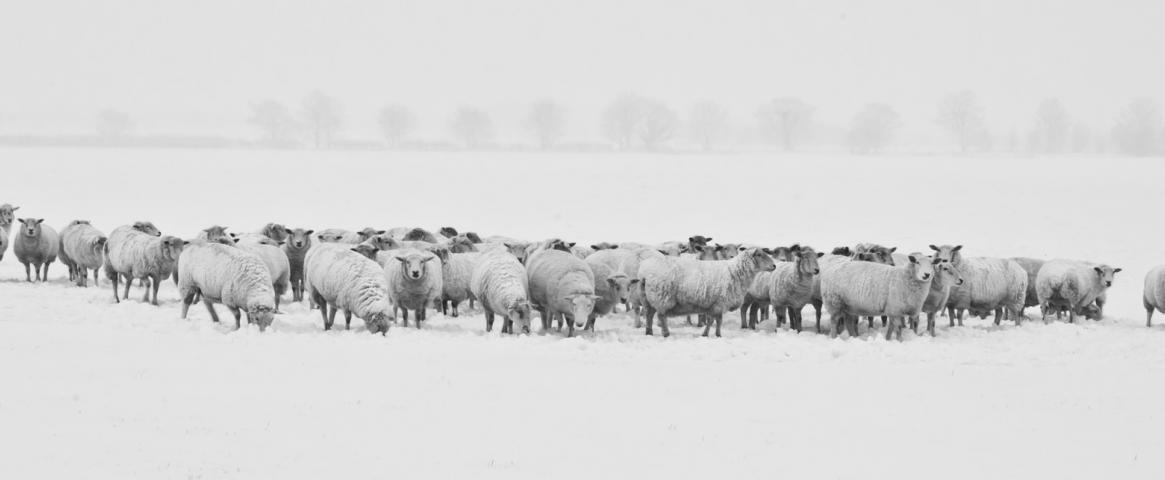By Salvatore Aiello
As temperatures drop in the winter, a flock of geese will honk their way south and small woodland creatures will store away rations for the winter. Despite decades of research on where many animals go when temperatures drop in the winter, scientists are less certain about how animals are able to perceive the timing of that temperature drop. Now, researchers at Northwestern University in Chicago believe they are a step closer to understanding how temperature influences an animal’s behavior as it prepares for winter.
In a recent study in Current Biology, neurobiologist Marco Gallio, Ph.D., and his colleagues reported both the discovery of a new type of neuron that acts as an alert for cold temperatures and a connection between neurons that sense temperature and circadian neurons that regulate sleep/wake cycles. This means that from flies to humans, colder temperatures and shorter days send an evolutionarily preserved message: Winter is coming.
Compared to olfaction (the ability to smell) and vision, temperature processing in the brain is not well understood. Gallio has spent over a decade studying temperature sensation in fly brains and has discovered several types of temperature-sensing neurons. In the new study, he and his team showed that beyond just sensing a change in temperature, neurons that sense the ambient temperature are activated when the temperature drops below 25 oC. The neuron acts like a switch: Below 25 oC, the neuron remains activated until the temperature rises.
The scientists also found that many of the temperature-sensing neurons interact with circadian neurons that regulate sleep/wake cycles -- a discovery that surprised Gallio. “We didn’t anticipate a response in the lesser known circadian neurons,” he said.
Monica Dus Ph.D., a researcher at the University of Michigan in Ann Arbor who studies the interaction of environment and genetics on behavior, suggests that Gallio’s study results could have broad implications. As summer turns to fall, bees begin to sit on flowers, instead of their characteristic buzzing and hovering above them. Gallio’s study provides a possible mechanism to explain this behavior. “If the bees didn’t have the system to adapt their behavior like the sleep/wake cycle and wait until the sun comes out to warm things up, then they most likely pass out on the sidewalk,” she said.
Gallio’s team discovered that cold temperatures and sunlight send a conflicting message to the circadian neurons and this creates a more prolonged adaptive response to cold temperatures. “There is a push-pull relationship between temperature signaling and light signaling on sleep,” Gallio said. “It turns out that even if it is cold, the morning light can overcome the inhibition of cold.”
Dus plans to examine the long-term implications of how persistent cold weather might shape the sleep-wake cycle. “I’m interested in knowing that once it gets warm again, how long does it take for the fly to wake up?” she said. “Would it take a week of being warm for the system to go back to the summer state?” Research in this area could start to explain how hibernating animals are able to recognize when to end their winter-long slumbers and signal migrating animals to start the return trip for spring.
Salvatore Aiello is pursuing a combined MD/PhD degree at the Resuscitation Institute at Rosalind Franklin University. Aiello has authored several peer reviewed scientific articles appearing in the Journal of the American Heart Association and elsewhere. His research interests surround automating cardiac resuscitation and promoting CPR education. Aiello also has presented and written on incorporating medical humanities into the medical school curriculum.
This story was produced as part of NASW's David Perlman Summer Mentoring Program, which was launched in 2020 by our Education Committee. Aiello was mentored by Steven Benowitz.
Hero image by Scott Payne on Pixabay.



